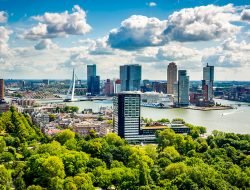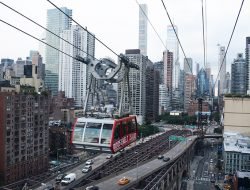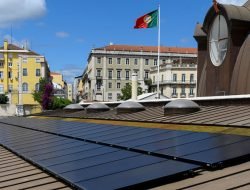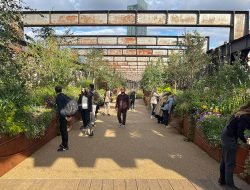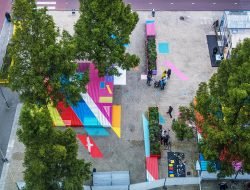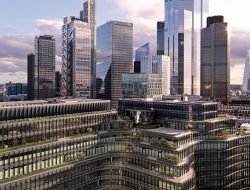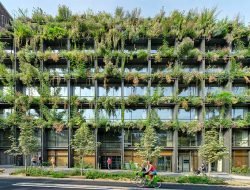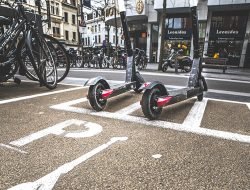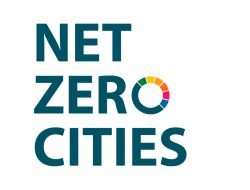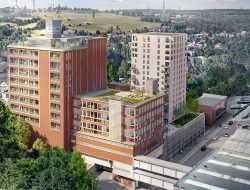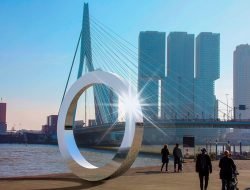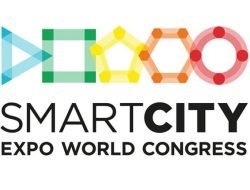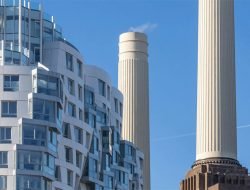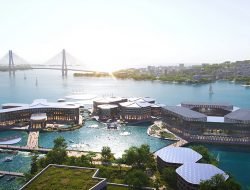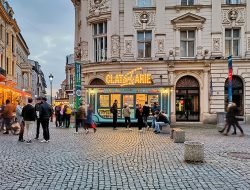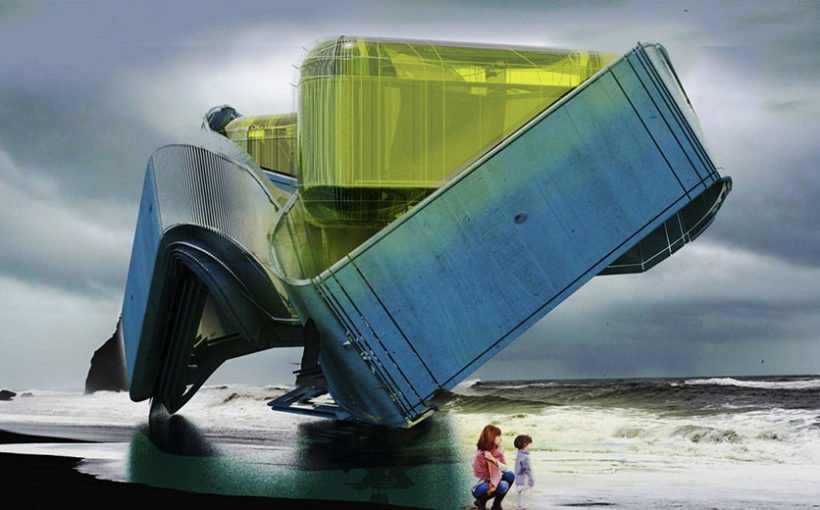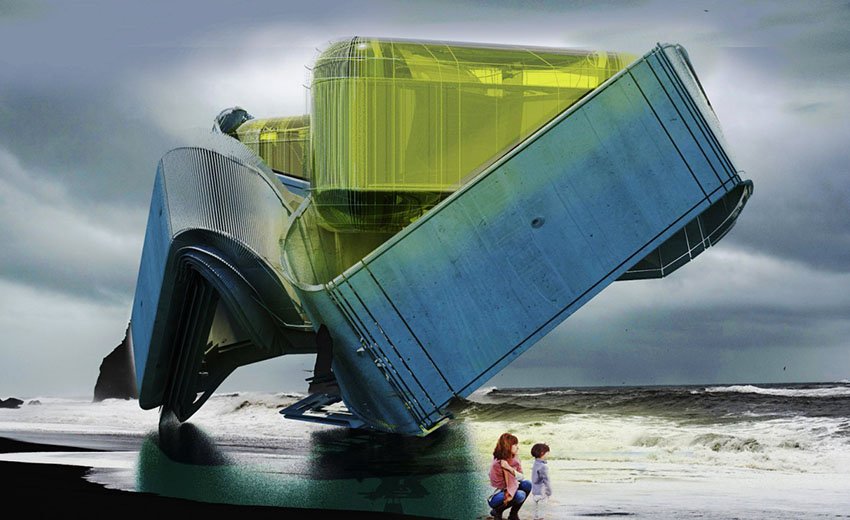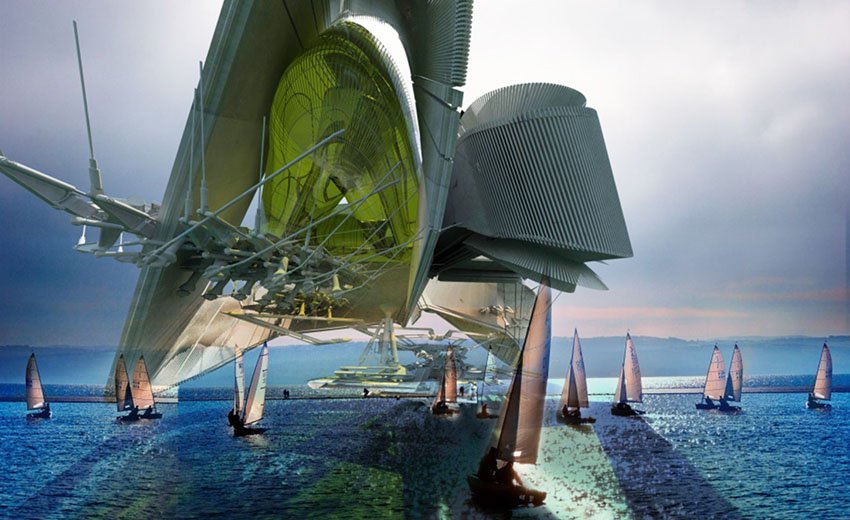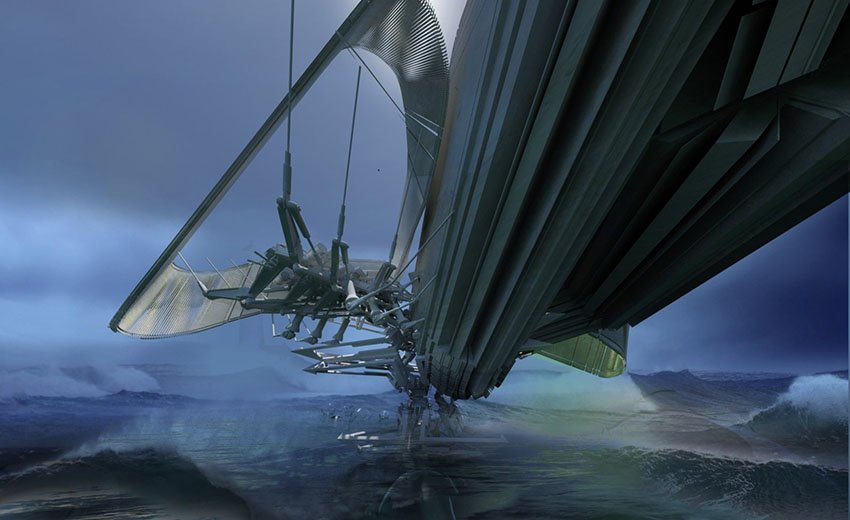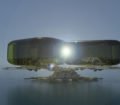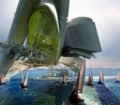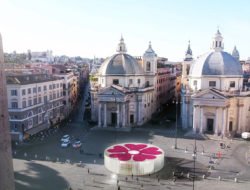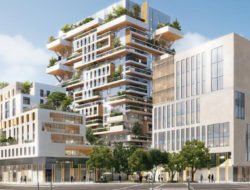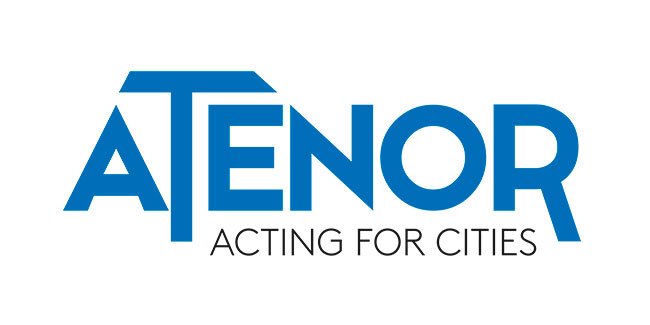How can renewable energy be integrated into existing and polluting architectures? This is the question answered by Beijing-based architecture firm Margot Krasojevic. The idea: to turn oil platforms into eco-responsible hotels.
Jeju Island. An hour’s flight from Seoul, Osaka, Shanghai and Beijing. Long known as merely ‘someplace’ on nautical maps, this volcano in the south of the Korean peninsula receives 15 million visitors per year. And there, off the coast, an old metal structure breaks the beauty of the sea landscape.
Only accessible by boat, this oil platform will be converted into a sizeable eco-responsible hotel. Attached to the body of the building, turbines will feed the structure with tidal energy. As the waves break on the platform, they will swivel as the wind blows. Another trick: the water will be desalinated to meet the needs of the residents. As for the futuristic design, it will be designed with aluminium structures chosen for their durability and lightness.
Offshore engineering
The interior of the hotel will consist of three sections: a lobby, the rooms and shared spaces. And in the event of an emergency, airlocks will safely remove residents from the structure. In reality, the project uses the knowledge of offshore oil construction engineers to give it a new dimension, as the structure regularly has to deal with severe marine weather. Will offshore tourism become a new trend?
Tags: architecture, eco-responsible, Jeju island, Margot Krasojevic, oil platform



